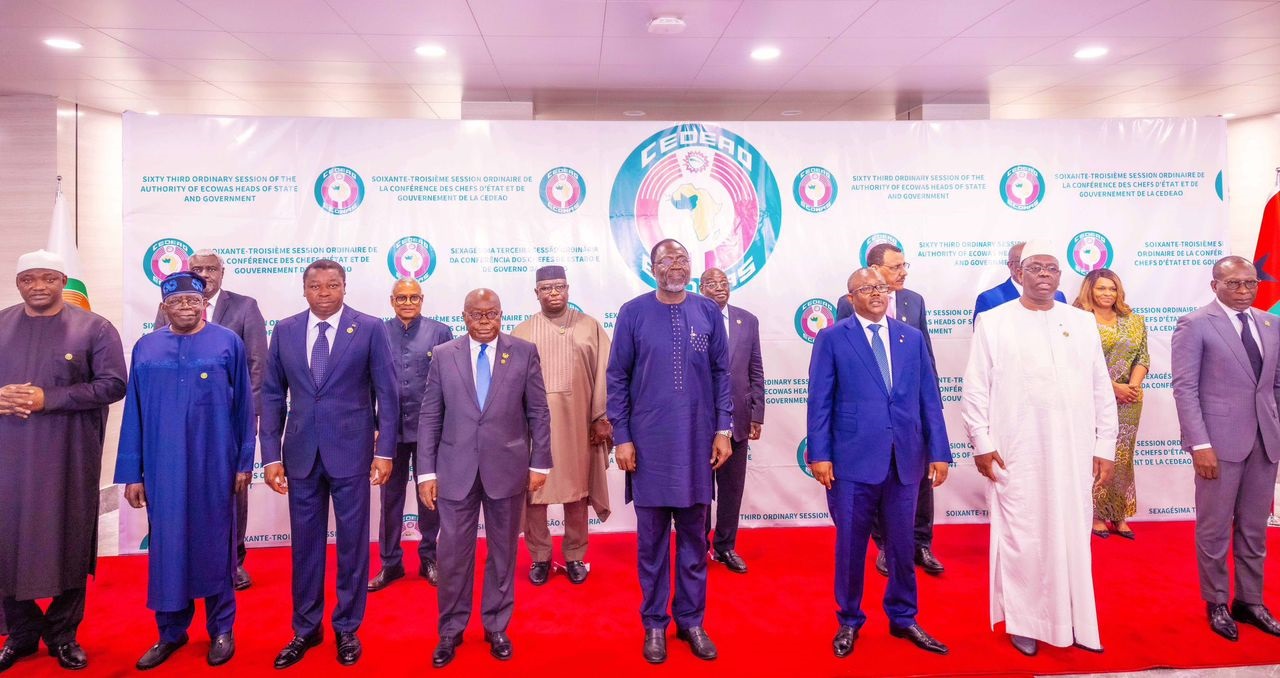President Julius Maada and fourteen other Western African Heads of State elected Nigeria’s President Bola Tinubu as the Chairman of the Authority of Heads of State and Government of the Economic Community of West African States (ECOWAS) on Sunday.
Tinubu was elected chairman at the 63rd Ordinary Session of the regional bloc held on Sunday afternoon in Bissau, the capital of Guinea-Bissau. Apart from electing its new leader, the session also considered reports from the Ninetieth Ordinary Session of the ECOWAS Council of Ministers meeting and other issues affecting the region.
“We will take democracy seriously, Democracy is very tough but it is the form of government,” the Nigerian leader said after he received handover documents from the outgoing chairman who is Guinea-Bissau’s President, Umaro Embaló.

The ECOWAS Chairmanship is a position held by one of the heads of state or government of the member countries, chosen on a rotating basis for a one-year tenure.
Sierra Leone has only held the position once from 1981–1982 under President Siaka Stevens.
Though the role does not confer executive powers, the Chairman plays a strategic role in conflict resolution, advocacy and liaises with the President of the ECOWAS Commission, the executive responsible for the day-to-day management and implementation of ECOWAS policies and decisions.

The ECOWAS summit in Guinea-Bissau was Bio’s first international outing on the African continent since he was re-elected Sierra Leonean president on June 24.
ECOWAS is made up of fifteen member countries that are located in the Western African region. These countries have both cultural and geopolitical ties and shared common economic interest. The region of West Africa is located west of north-south axis lying close to 10° east longitude. The countries include Benin, Burkina Faso, Cabo Verde, Côte D’ivoire, The Gambia, Ghana, Guinea, Guinea Bissau, Liberia, Mali, Niger, Nigeria, Senegal, Sierra Leone and Togo.

 8 Comments
8 Comments









Comment(s)
Disclaimer: Comments expressed here do not reflect the opinions of Sierraloaded or any employee thereof.